-
 Bitcoin
Bitcoin $82,770.9885
-0.53% -
 Ethereum
Ethereum $1,811.0838
-0.62% -
 Tether USDt
Tether USDt $0.9996
-0.01% -
 XRP
XRP $2.0610
1.56% -
 BNB
BNB $591.5998
-0.12% -
 USDC
USDC $0.9999
0.00% -
 Solana
Solana $116.7637
-3.59% -
 Dogecoin
Dogecoin $0.1606
-2.58% -
 Cardano
Cardano $0.6491
0.00% -
 TRON
TRON $0.2375
1.32% -
 Toncoin
Toncoin $3.6204
-7.56% -
 UNUS SED LEO
UNUS SED LEO $9.4063
0.23% -
 Chainlink
Chainlink $12.8000
-2.19% -
 Stellar
Stellar $0.2605
1.01% -
 Avalanche
Avalanche $18.1124
-1.26% -
 Sui
Sui $2.2384
-2.51% -
 Shiba Inu
Shiba Inu $0.0...01223
0.65% -
 Hedera
Hedera $0.1627
0.30% -
 Polkadot
Polkadot $4.0538
1.44% -
 Litecoin
Litecoin $82.9722
0.02% -
 MANTRA
MANTRA $6.4051
3.36% -
 Bitcoin Cash
Bitcoin Cash $301.6530
1.88% -
 Bitget Token
Bitget Token $4.4826
-1.05% -
 Dai
Dai $1.0000
0.02% -
 Ethena USDe
Ethena USDe $0.9995
-0.02% -
 Monero
Monero $212.5474
-1.93% -
 Hyperliquid
Hyperliquid $11.6624
-5.49% -
 Pi
Pi $0.5680
-13.45% -
 Uniswap
Uniswap $5.8333
-1.59% -
 Aptos
Aptos $5.0533
-1.32%
What is the future growth potential of the NFT market?
The NFT market's growth potential is driven by mainstream adoption, tech advancements, and expanding use cases beyond art, despite regulatory and environmental challenges.
Apr 03, 2025 at 11:35 am
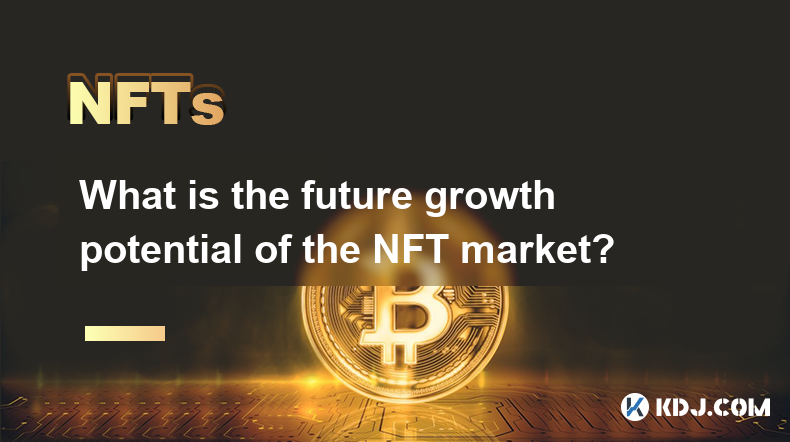
The future growth potential of the NFT market is a topic of significant interest within the cryptocurrency circle. Non-Fungible Tokens (NFTs) have rapidly gained popularity, primarily due to their unique ability to represent ownership of digital assets securely on the blockchain. As we look ahead, several factors suggest that the NFT market could experience substantial growth. These include increased mainstream adoption, technological advancements, and the expansion of use cases beyond art and collectibles. This article will delve into these aspects to provide a comprehensive understanding of the potential trajectory of the NFT market.
Mainstream Adoption and Market Expansion
The NFT market has already seen a surge in mainstream adoption, with celebrities, artists, and brands jumping on the bandwagon. This trend is likely to continue, driven by the growing awareness and acceptance of digital ownership. As more people become comfortable with the concept of NFTs, the market is expected to expand significantly. The entry of major corporations into the NFT space, such as Coca-Cola and Nike, further validates this potential. Additionally, the integration of NFTs into gaming and virtual reality platforms could open up new avenues for growth, attracting a broader audience.
Technological Advancements and Infrastructure
Technological advancements play a crucial role in the future growth of the NFT market. Improvements in blockchain technology, such as faster transaction speeds and lower fees, could make NFTs more accessible and appealing to a wider audience. The development of more user-friendly platforms and wallets will also be essential in driving adoption. Moreover, the emergence of layer-2 solutions and interoperability between different blockchains could enhance the functionality and reach of NFTs. These technological improvements are expected to contribute significantly to the growth potential of the NFT market.
Expansion of Use Cases
Initially, NFTs were primarily associated with digital art and collectibles. However, the potential use cases for NFTs are expanding rapidly. One of the most promising areas is the integration of NFTs into the gaming industry, where they can represent unique in-game assets that players can own and trade. Additionally, NFTs are being explored for use in real estate, where they could represent ownership of property or land in virtual worlds. Other potential applications include ticketing, where NFTs could serve as secure, verifiable tickets for events, and intellectual property, where creators can tokenize their work to ensure ownership and royalties.
Regulatory Environment and Challenges
The regulatory environment surrounding NFTs is still evolving, which could impact their future growth potential. Clear and favorable regulations could provide a boost to the market by offering more certainty and protection for investors and creators. However, stringent regulations could stifle innovation and limit the growth of the NFT market. Additionally, challenges such as environmental concerns related to the energy consumption of certain blockchains, and the need for better standards and security measures, need to be addressed to ensure the sustainable growth of the NFT market.
Market Dynamics and Investment Opportunities
The dynamics of the NFT market are constantly evolving, with new projects and platforms emerging regularly. This creates a vibrant ecosystem that offers numerous investment opportunities. Investors interested in the NFT market can explore various avenues, including investing in established NFT platforms, purchasing individual NFTs, or even investing in startups that are developing innovative NFT applications. However, it's important for investors to conduct thorough research and understand the risks involved, as the NFT market can be highly volatile. The potential for high returns is matched by the potential for significant losses.
Cultural and Social Impact
The rise of NFTs is not just a technological phenomenon; it also has significant cultural and social implications. NFTs have democratized the art world, allowing artists to reach global audiences and monetize their work directly. This has led to a cultural shift where digital art is increasingly recognized and valued. Additionally, NFTs have fostered new forms of social interaction and community building, with collectors and creators coming together in online spaces. The cultural and social impact of NFTs is likely to grow as they become more integrated into everyday life, further driving their adoption and growth.
Economic Factors and Market Trends
Economic factors such as global economic conditions, consumer spending patterns, and the overall health of the cryptocurrency market can influence the growth potential of the NFT market. During periods of economic prosperity, consumers may be more willing to invest in NFTs as a form of luxury spending. Conversely, economic downturns could lead to reduced spending on NFTs. Additionally, market trends such as the popularity of certain types of NFTs, like profile picture projects or virtual real estate, can drive growth in specific segments of the market. Keeping an eye on these economic factors and market trends can provide valuable insights into the future growth potential of the NFT market.
Global Reach and Accessibility
The global reach of the NFT market is another factor that could contribute to its future growth. With the internet and blockchain technology, NFTs can be accessed and traded by anyone with an internet connection, regardless of their geographic location. This global accessibility can drive the adoption of NFTs in emerging markets, where traditional financial systems may be less developed. As more people around the world gain access to NFTs, the market could experience significant growth. However, ensuring that the infrastructure and education needed to support this global reach are in place will be crucial.
Community and Ecosystem Development
The development of a strong community and ecosystem around NFTs is essential for their future growth. A vibrant community can drive innovation, provide support for new projects, and help educate newcomers about the potential of NFTs. Platforms that foster community engagement, such as Discord servers and social media groups, play a crucial role in this ecosystem. Additionally, collaborations between different projects and the creation of standards and best practices can help the NFT market grow in a sustainable and inclusive manner. The strength and health of the NFT community will be a key determinant of the market's future growth potential.
Future Innovations and Disruptive Technologies
The future of the NFT market is likely to be shaped by ongoing innovations and disruptive technologies. One potential area of innovation is the development of fractional NFTs, which could make high-value NFTs more accessible to a broader audience. Another exciting development is the integration of NFTs with other emerging technologies, such as artificial intelligence and the Internet of Things (IoT). These integrations could lead to new use cases and applications for NFTs, further driving their growth. Staying abreast of these innovations and understanding their potential impact on the NFT market will be crucial for anyone interested in its future growth potential.
Frequently Asked Questions
Q: What are NFTs and how do they work?
A: NFTs, or Non-Fungible Tokens, are unique digital assets that are stored on a blockchain. Unlike cryptocurrencies such as Bitcoin or Ethereum, which are fungible and can be exchanged on a one-to-one basis, NFTs are indivisible and represent ownership of a specific item or piece of content. They work by using smart contracts on the blockchain to verify ownership and facilitate transactions. When someone buys an NFT, the ownership is recorded on the blockchain, ensuring that it cannot be duplicated or counterfeited.
Q: What factors could drive the growth of the NFT market?
A: Several factors could drive the growth of the NFT market. These include increased mainstream adoption, technological advancements, the expansion of use cases beyond art and collectibles, a favorable regulatory environment, and the development of a strong community and ecosystem. Additionally, economic factors, global reach, and future innovations in the space could also contribute to the market's growth potential.
Q: What are some potential challenges facing the NFT market?
A: The NFT market faces several potential challenges, including regulatory uncertainty, environmental concerns related to the energy consumption of certain blockchains, the need for better standards and security measures, and market volatility. Addressing these challenges will be crucial for the sustainable growth of the NFT market.
Q: How can someone invest in the NFT market?
A: There are several ways to invest in the NFT market. Investors can purchase individual NFTs on platforms like OpenSea or Rarible, invest in established NFT platforms, or invest in startups developing innovative NFT applications. It's important for investors to conduct thorough research and understand the risks involved, as the NFT market can be highly volatile.
Q: What are some potential future use cases for NFTs?
A: Beyond art and collectibles, potential future use cases for NFTs include integration into the gaming industry, where they can represent unique in-game assets, real estate in virtual worlds, ticketing for events, and intellectual property rights. As technology advances, new and innovative use cases for NFTs are likely to emerge, further driving their growth potential.
Disclaimer:info@kdj.com
The information provided is not trading advice. kdj.com does not assume any responsibility for any investments made based on the information provided in this article. Cryptocurrencies are highly volatile and it is highly recommended that you invest with caution after thorough research!
If you believe that the content used on this website infringes your copyright, please contact us immediately (info@kdj.com) and we will delete it promptly.
- Gold Exempt From New "Reciprocal" Tariffs
- 2025-04-04 06:35:12
- Time to Buy Aptos (APT) Cheap? This Chart Pattern Signals a 10% Move for the Price!
- 2025-04-04 06:35:12
- An Analyst Has Explained How Dogecoin Could Be at a Make-or-Break Level Right Now Based on a TA Chart Pattern
- 2025-04-04 06:30:12
- Micro Intelligence Company Strategy Has Purchased 22,048 Bitcoins Worth $1.92 Billion in a New Deal
- 2025-04-04 06:30:12
- BlockDAG's Beta Testnet Is Live— Aims to Achieve 15K TPS! Ethereum Price Falls 0.5% & ETC Dips 6.7%
- 2025-04-04 06:25:12
- title: New decentralized finance (DeFi) trading altcoin is surging after gaining support from the top US-based crypto exchange platform by volume
- 2025-04-04 06:25:12
Related knowledge
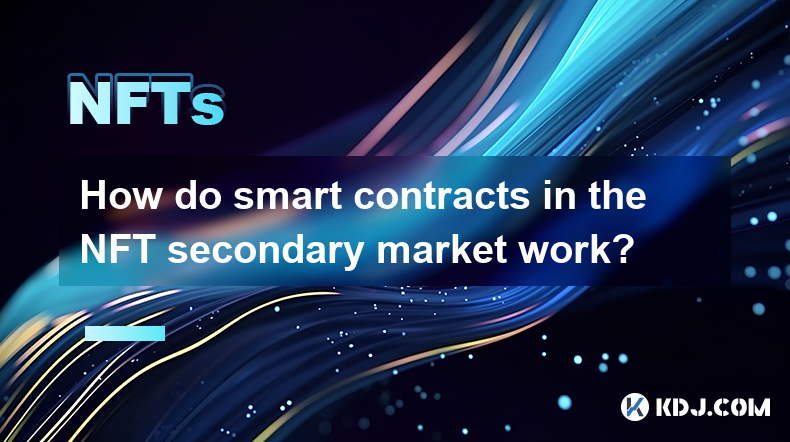
How do smart contracts in the NFT secondary market work?
Apr 03,2025 at 07:14am
Smart contracts play a pivotal role in the NFT secondary market, facilitating seamless transactions and enforcing predefined rules. These self-executing contracts with the terms of the agreement directly written into code are stored on the blockchain. In the context of NFTs, smart contracts automate the buying, selling, and transferring of digital asset...
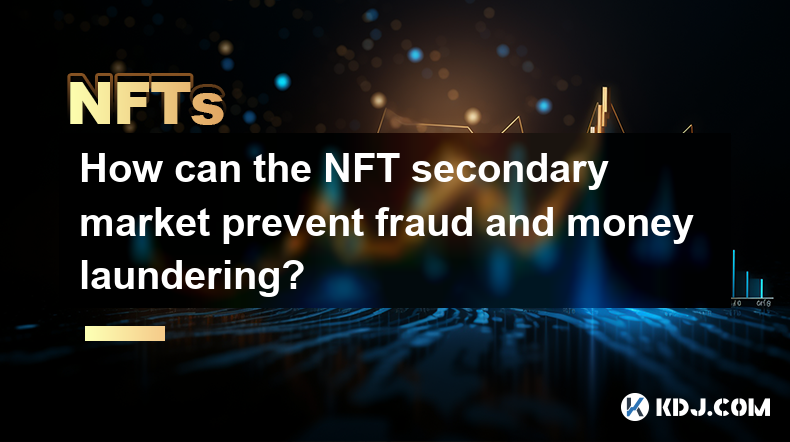
How can the NFT secondary market prevent fraud and money laundering?
Apr 03,2025 at 08:35am
The NFT secondary market has become a thriving hub for digital art and collectibles, but it also faces challenges in preventing fraud and money laundering. To tackle these issues, the market can implement various strategies and technologies to ensure a safer and more transparent trading environment. This article will explore how the NFT secondary market...
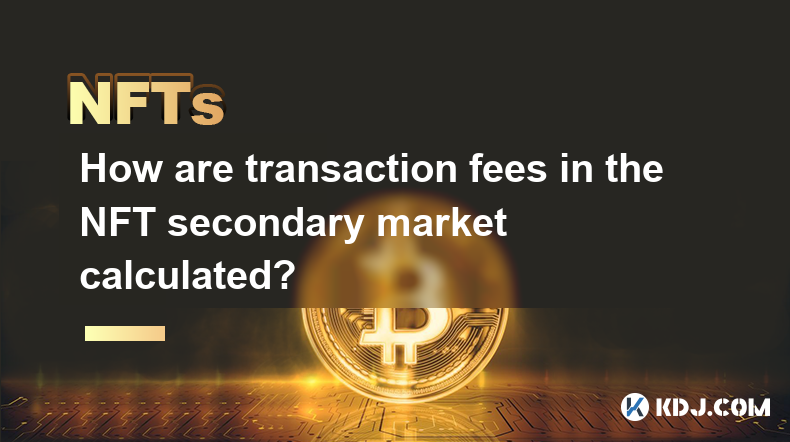
How are transaction fees in the NFT secondary market calculated?
Apr 04,2025 at 05:28am
The calculation of transaction fees in the NFT secondary market is a crucial aspect that both buyers and sellers need to understand. These fees can significantly impact the overall cost of transactions and the profits that sellers can make. In this article, we will delve into the various components that make up these fees, how they are calculated, and w...
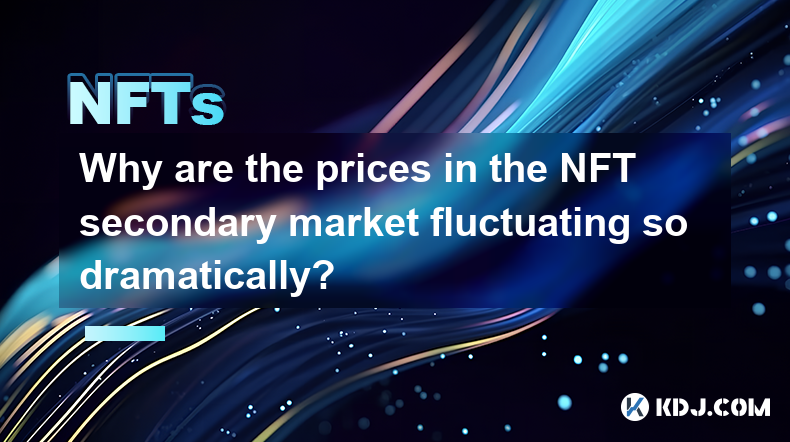
Why are the prices in the NFT secondary market fluctuating so dramatically?
Apr 03,2025 at 10:35pm
The NFT secondary market has been experiencing dramatic price fluctuations, leaving many in the cryptocurrency community puzzled and curious. To understand this phenomenon, it's essential to delve into the factors driving these price movements. From the impact of market sentiment and celebrity endorsements to the role of speculation and the unique natur...
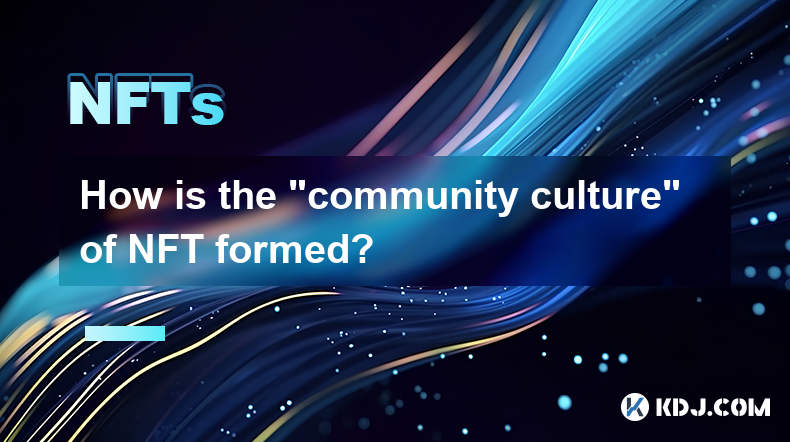
How is the “community culture” of NFT formed?
Apr 03,2025 at 11:07am
The formation of the 'community culture' within the NFT (Non-Fungible Token) space is a fascinating and multi-faceted process. It involves various elements such as shared interests, active engagement, and the creation of a sense of belonging among members. NFT communities often revolve around specific projects or artists, fostering a unique environment ...
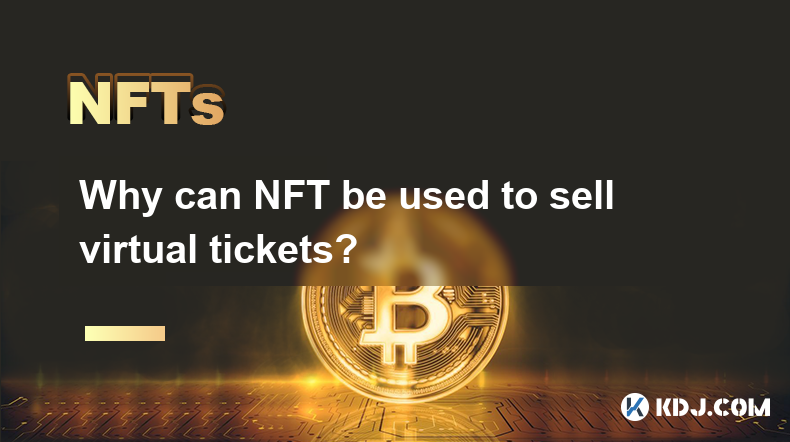
Why can NFT be used to sell virtual tickets?
Apr 03,2025 at 01:35pm
NFTs, or Non-Fungible Tokens, have revolutionized the way we think about digital ownership and value, particularly in the realm of virtual tickets. The primary reason NFTs can be used to sell virtual tickets is their unique nature. Unlike cryptocurrencies such as Bitcoin or Ethereum, which are fungible and can be exchanged on a one-to-one basis, NFTs ar...

How do smart contracts in the NFT secondary market work?
Apr 03,2025 at 07:14am
Smart contracts play a pivotal role in the NFT secondary market, facilitating seamless transactions and enforcing predefined rules. These self-executing contracts with the terms of the agreement directly written into code are stored on the blockchain. In the context of NFTs, smart contracts automate the buying, selling, and transferring of digital asset...

How can the NFT secondary market prevent fraud and money laundering?
Apr 03,2025 at 08:35am
The NFT secondary market has become a thriving hub for digital art and collectibles, but it also faces challenges in preventing fraud and money laundering. To tackle these issues, the market can implement various strategies and technologies to ensure a safer and more transparent trading environment. This article will explore how the NFT secondary market...

How are transaction fees in the NFT secondary market calculated?
Apr 04,2025 at 05:28am
The calculation of transaction fees in the NFT secondary market is a crucial aspect that both buyers and sellers need to understand. These fees can significantly impact the overall cost of transactions and the profits that sellers can make. In this article, we will delve into the various components that make up these fees, how they are calculated, and w...

Why are the prices in the NFT secondary market fluctuating so dramatically?
Apr 03,2025 at 10:35pm
The NFT secondary market has been experiencing dramatic price fluctuations, leaving many in the cryptocurrency community puzzled and curious. To understand this phenomenon, it's essential to delve into the factors driving these price movements. From the impact of market sentiment and celebrity endorsements to the role of speculation and the unique natur...

How is the “community culture” of NFT formed?
Apr 03,2025 at 11:07am
The formation of the 'community culture' within the NFT (Non-Fungible Token) space is a fascinating and multi-faceted process. It involves various elements such as shared interests, active engagement, and the creation of a sense of belonging among members. NFT communities often revolve around specific projects or artists, fostering a unique environment ...

Why can NFT be used to sell virtual tickets?
Apr 03,2025 at 01:35pm
NFTs, or Non-Fungible Tokens, have revolutionized the way we think about digital ownership and value, particularly in the realm of virtual tickets. The primary reason NFTs can be used to sell virtual tickets is their unique nature. Unlike cryptocurrencies such as Bitcoin or Ethereum, which are fungible and can be exchanged on a one-to-one basis, NFTs ar...
See all articles






















































































